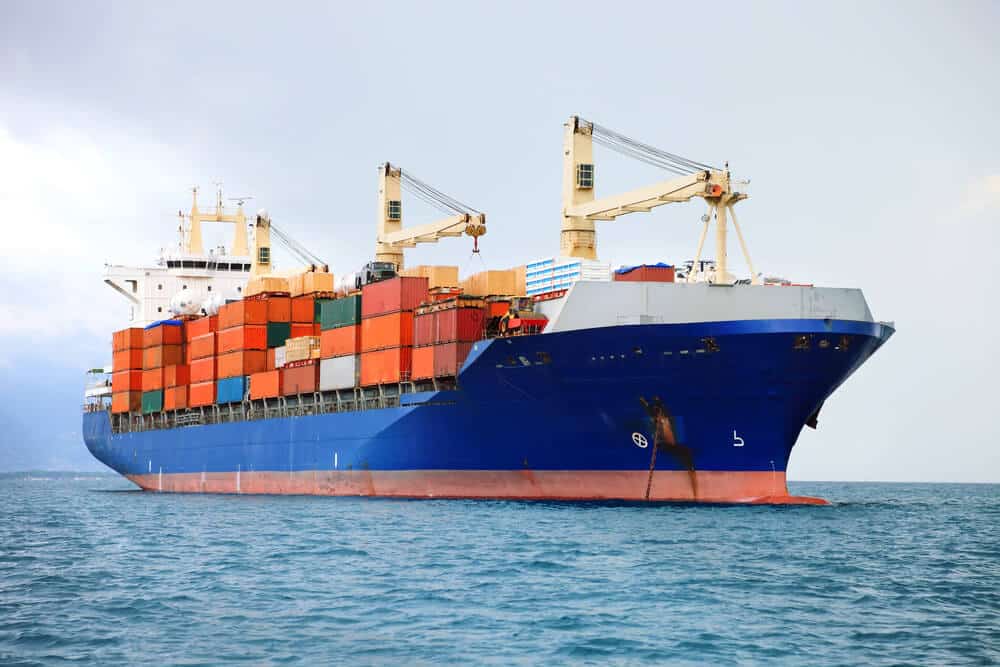Which is Better Ship Chartering V/S Ship Brokering?
Table of contents
Overview
Ship chartering and ship brokering are both integral parts of the maritime industry, they both involve different roles and functions. In Ship Brokering, they act as agents connecting the two parties and they play an intermediary role in facilitating agreement between the ship charters and ship owners. However, Ship chartering involves the process of hiring a suitable vessel for cargo transportation for a specific period. There are two parties involved: the shipowners and the charter.
1. Ship Brokering

Ship brokering is the intermediary service provided by professionals known as ship brokers. These brokers facilitate various aspects of maritime trade, including chartering vessels, negotiating contracts, and arranging cargo shipments.
Shipbrokers act as intermediaries between shipowners and charterers or buyers, leveraging their expertise to secure favourable deals for both parties involved.
2. How to Become a Ship Broker
To become a shipbroker the individual needs to have a set of skills and it involves a combination of education, knowledge about the industry and practical experience. There is no specific educational requirement to become a ship broker but having a degree relevant to the maritime industry can be beneficial.
For more information on how to become a shipbroker you can check out this blog, Click Here
2.1:- Duties of a Ship Broker
- Making Connections: The role of a shipbroker is to connect shipowners and ship charters to represent the interests of their clients in negotiations and transactions. Building connections and a strong network in the maritime sector with clients, ship owners, and ship charters.
- Facilitating Contracts: They help facilitate the agreement between the two parties by helping negotiate the terms and arrange the contracts. They work to secure the best possible deals on behalf of their clients.
- Market Analysis: They are responsible for analyzing the market, finding suitable vessels, and ensuring the smooth transaction. They analyze market conditions to provide clients with insights and recommendations for their shipping needs.
- Documentation: Brokers prepare and review legal documents related to charter parties, and sale and purchase agreements, and also assist with the draft of the contract and handling the documents.
- Risk Management: Brokers advise the clients and assess the situation to manage the risk related to complex legal and regulatory requirements.
You can check out the complete details about duties and how to become a ship broker with our guide on ship broker, Click Here
2.2:- Skills to Become a Ship Broker
A shipbroker is a professional who works as a broker between ship owners and charter. They play a very vital role in the maritime industry. There are a set of skills that are required to become a shipbroker and successfully navigate through the shipping industry.
- Market Analysis: Shipbrokers need to analyze market data and trends to identify opportunities and risks, enabling informed decision-making in chartering and logistics operation
- Communication Skills: Shipbrokers must communicate effectively with clients and other stakeholders to convey the information accurately.
- Negotiation Skills: Brokers need to possess strong negotiation skills to negotiate and secure favorable deals for their clients.
- Networking: Maintaining a broad network of contacts within the shipping industry is crucial and it allows access to various opportunities and information.
- Problem-Solving Skills: Strong problem-solving skills are essential for resolving issues. Ship brokers encounter a wide range of challenges
- Knowledge of Industry: A deep understanding of the shipping industry is crucial for providing clients with valuable advice and insight into the industry.
- Adaptability: The shipping industry is unpredictable and it depends on various factors such as weather conditions, and regulatory changes. Ship brokers need to be dynamic and quickly adapt to the changing conditions.
3. Career Prospects of a Ship Broker
The career prospects for ship brokers are promising, offering a dynamic and rewarding path for individuals with a passion for the maritime industry. They offer many opportunities and rich benefits for growth in the shipping industry. There is a need for shipbrokers in the shipping industry to facilitate contracts and brokering services. This career is financially rewarding and it provides you with the potential for high earning.
For more information, you can visit our free guidance series on ship brokering and ship chartering, click here
4. Ship Chartering

Ship chartering is the process of hiring a ship for a specific purpose and period. It involves a contractual agreement between the owner of the vessel and the party that requires the ship’s services. Ship chartering plays a vital role in global trade, allowing businesses to transport goods efficiently and cost-effectively across the world’s oceans. It provides flexibility to both shipowners and charterers, enabling them to match shipping capacity with fluctuating demand and specific transportation requirements.
4.1:- Duties of a Ship Charterer
The roles and responsibilities of a ship charter, which are frequently specified in a charter party agreement, can differ depending on the terms agreed upon by the charterer and the shipowner. Here are a few common aspects:
- The role of the charter is to secure the vessel for the transportation of the cargo or to fix business. This includes ensuring that the ship is in good condition, properly equipped, and manned by a competent crew.
- The responsibility of a charter is to negotiate the terms of the charter contracts, rate of transportation, duration of the shipment, cargo specifications, size of the ship, dead weight and they may also handle the cargo and logistics.
- Charters can work as individuals, or in companies for transportation services. The chartering manager connects owners and charters.
- The charter is the individual with the cargo or handles the cargo. The charterer is typically responsible for loading, stowing, securing, and unloading the cargo. This includes ensuring that the cargo is properly documented and that all relevant customs and port regulations are followed.
- The charter party agreement includes provisions for resolving disputes that may arise.
4.2:- Skills Required to be a Charterer
- Market Knowledge: Developing a deep understanding of the shipping market, including factors like vessel availability, fluctuating freight rates driven by supply and demand dynamics, and nuanced regional demand patterns, is crucial for making well-informed decisions that drive operational success.
- Negotiation: Negotiation skills are crucial for charterers, who engage in discussions with ship owners or brokers to craft agreements that not only secure favorable terms and rates but also ensure mutually beneficial conditions conducive to long-term partnerships.
- Analytical Skills: Proficiency in analyzing diverse market trends, meticulously scrutinizing optimal shipping routes based on considerations such as cost-efficiency and time sensitivity, evaluating the impact of fluctuating fuel costs on operational expenses, and conducting thorough analyses of various pertinent factors empowers charterers to make strategic decisions that optimize vessel chartering activities.
- Risk Management: To effectively manage risks associated with chartering activities, a variety of risks must be identified, and carefully evaluated. Charterers can manage unanticipated risks including shifting fuel prices, complex geopolitical situations, possible disruptions from bad weather, and other unexpected challenges.
- Communication skills: Effective communication is essential for the success of any charterer because it allows for open and cooperative relationships between charterers, ship owners, brokers, clients, and other stakeholders. Quick, precise, and well-timed communication facilitates good problem-solving and proactive management of chartering activities in addition to promoting transparency and confidence.
- Problem-Solving: To handle a variety of issues that may come up during the chartering process, charterers need to be skilled problem solvers. For chartering operations to run smoothly and continuously, it is important to develop these skills to think critically, creatively, and effectively.
5. Career Opportunities for Ship Charterer
The career prospects in ship chartering are very diverse and dynamic, it offers various opportunities for individuals with a range of skills and expertise in areas such as negotiation, operations management, and market analysis. Ship chartering provides various rewarding opportunities. They have to oversee the day-to-day operations of chartering activities within a shipping company or charter brokerage firm. They coordinate vessel schedules, manage charter contracts, and ensure that chartering operations run smoothly and efficiently.
Conclusion

In conclusion, ship chartering and ship brokering are closely related but are different aspects of the maritime industry, each offering unique career paths and opportunities. Ship chartering involves the leasing of vessels for transportation purposes, while ship brokering focuses on facilitating charter agreements between ship owners and charterers.
On the other hand, ship brokers use their expertise in negotiation, market analysis, and contract management to match vessels with chartering needs and navigate complex agreements.
Ship chartering and ship brokering provide opportunities for people with a variety of interests and skill sets to pursue varied career paths. Aspiring professionals can choose rewarding careers in the field of maritime industry by being aware of the complexities of each role.
Disclaimer :- The opinions expressed in this article belong solely to the author and may not necessarily reflect those of Merchant Navy Decoded. We cannot guarantee the accuracy of the information provided and disclaim any responsibility for it. Data and visuals used are sourced from publicly available information and may not be authenticated by any regulatory body. Reviews and comments appearing on our blogs represent the opinions of individuals and do not necessarily reflect the views of Merchant Navy Decoded. We are not responsible for any loss or damage resulting from reliance on these reviews or comments.
Reproduction, copying, sharing, or use of the article or images in any form is strictly prohibited without prior permission from both the author and Merchant Navy Decoded.





